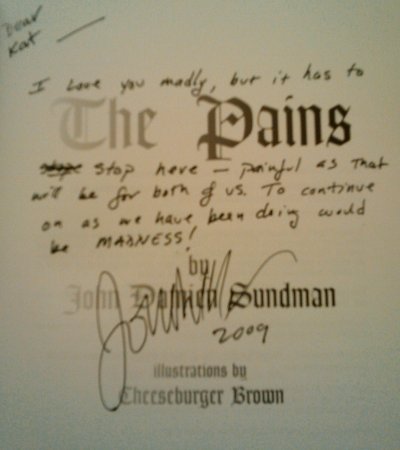I was pleasantly surprised to find the opening remarks on Judge Sotamayor’s confirmation hearing so interesting.
Senator Feingold explicitly referenced Barrack Obama (a constitutional law scholar as well as President) in acknowledging that the Supreme Court decides cases where the precedent and wording of written law is not clear. That’s its job. There could be no mechanical execution of a prewritten umpire or referee program. Such cases are decided by values.
Senator Graham explicitly acknowledged that this is the case and that he wasn’t sure how he felt about that. After all, he imagined Judge Sotomayor’s values were different from his own. The question then was whether he should try to impose his values or interpret those of the electorate.
I was proud of both of these men and my country’s institutions. And….
They all collectively ducked. Kept their heads down. Dodged it. Wimped out.
I think we’re due for a discussion, as today’s obituaries of Walter Cronkite made apparent. Every one contains claims of absolute objectivity and authority, while also citing Cronkite’s commentary in February 1968 that America cannot win the Vietnam War. President Johnson himself said it was a major influence on his subsequent actions.
How we relate values and the quest for objectivity is much debated in journalism today, but the industry is in turmoil and I do not yet see a consensus emerging. (An objective set of values on the issue?!) I share Senator Graham’s ambivalence. For example, I think George Will and Rush Limbaugh are equally hypocritical in their underlying views, but only Will is hypocritical in the pretension to rational thought in his presentation. I’m equivocal about which I fear more: Which is more evil? Which is more undermining to my culture and institutions? I admire the English stereotype of acting properly while leaving so much unsaid, but I consistently favor knowledge and transparent discussion over style, brevity, or unrecognized deceipt and ignorance. Cronkite explicitly alerted viewers that his conclusions were subjective. I share his values. But does that make it right? The same commentary left objectivity to the “referees of history.” The question is vital throughout the economy and government. By not taking this historic opportunity to discuss this reality — by elected leaders in open hearing — we leave it be mulled over or not by individual judges and bureaucrats and businessmen and media personalities. Decisions are still made on values, but it remains taboo to discuss and judge the context and consequences of how it happens.





